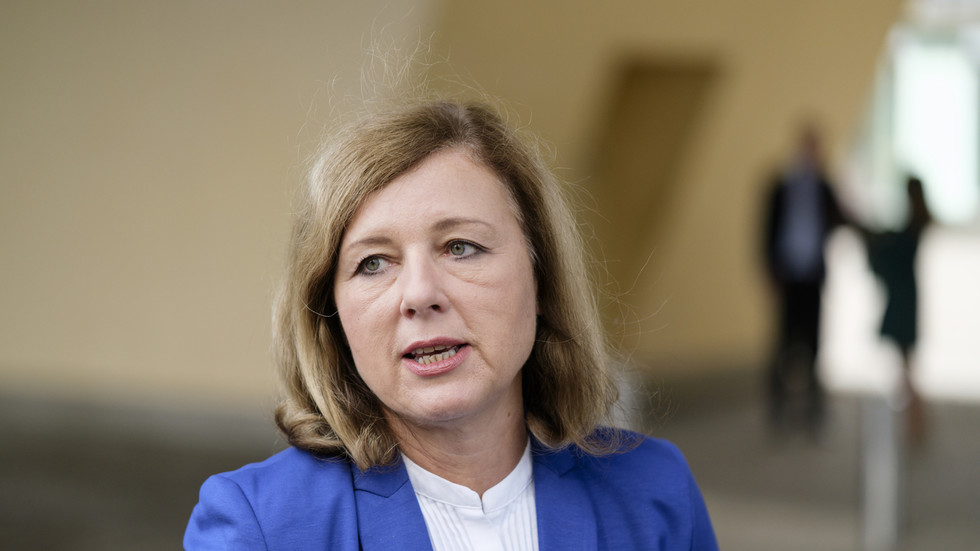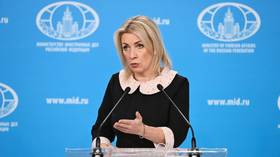
European Commission transparency chief Vera Jourova insisted the bloc was watching Warsaw “very closely”

© Getty Images / Thierry Monasse
The European Commission is “very closely” watching the political crisis unfolding in Poland and is ready to intervene if Warsaw violates EU law, the bloc’s vice president of values and transparency, Vera Jourova, told Euronews on Wednesday.
“We’re watching, of course,” Jourova said from the World Economic Forum’s annual meeting in Davos, Switzerland, insisting the Commission was “very closely assessing what’s happening in Poland in the field of media.”
“In case there is a contradiction with the existing EU law, then we will have to act,” she stated, explaining that while she had proposed the Media Freedom Act to protect journalists and news outlets from political interference in situations like the power struggle taking place over Poland’s state media, the legislation was not yet enforceable, as it has yet to be ratified by the European Parliament or EU member states.
Poland’s newly-elected Prime Minister, former European Council president Donald Tusk, fired the heads of the country’s state television, radio and news agency shortly after assuming power last month, insisting they were puppets of his predecessor’s Law and Justice Party (PiS), which he claimed had turned the publicly-owned outlets into right-wing propaganda organs. Poland’s state media are legally required to be free from political bias.

Read more
Accusing his political rival of abandoning legal precedent and creating “anarchy,” President Andrzej Duda, a member of PiS, responded by vetoing financial legislation that earmarked 3 billion zlotys (€700 million) for the state-run outlets. The Tusk government’s takeover of the outlets was undemocratic and unconstitutional, he argued, demanding the media be reconstituted fairly and legally.
Lacking the funds it expected from the spiked budget bill, Tusk’s cabinet subsequently declared the state media – which counts some 4,000 Poles as employees – insolvent pending an audit and reorganization. Tusk himself admitted his coalition’s media takeover “could have been slower,” even as he accused his rivals of failing to “come to terms with the loss of power” resulting from their election loss.
While Tusk’s three-party coalition won last year’s elections, PiS remains the largest party in the Sejm, the lower house of Poland’s parliament, meaning Duda has retained the ability to veto legislation with the party’s backing – and Tusk must cooperate or compromise with him if he hopes to pass a budget before the end of the month. Failure to do so could risk a snap election, potentially toppling the pro-EU PM’s coalition before the end of its second month in power.




